Bank of England signals August interest rate rise
Chief economist dissents from majority and votes to raise rates - making summer hike more likely
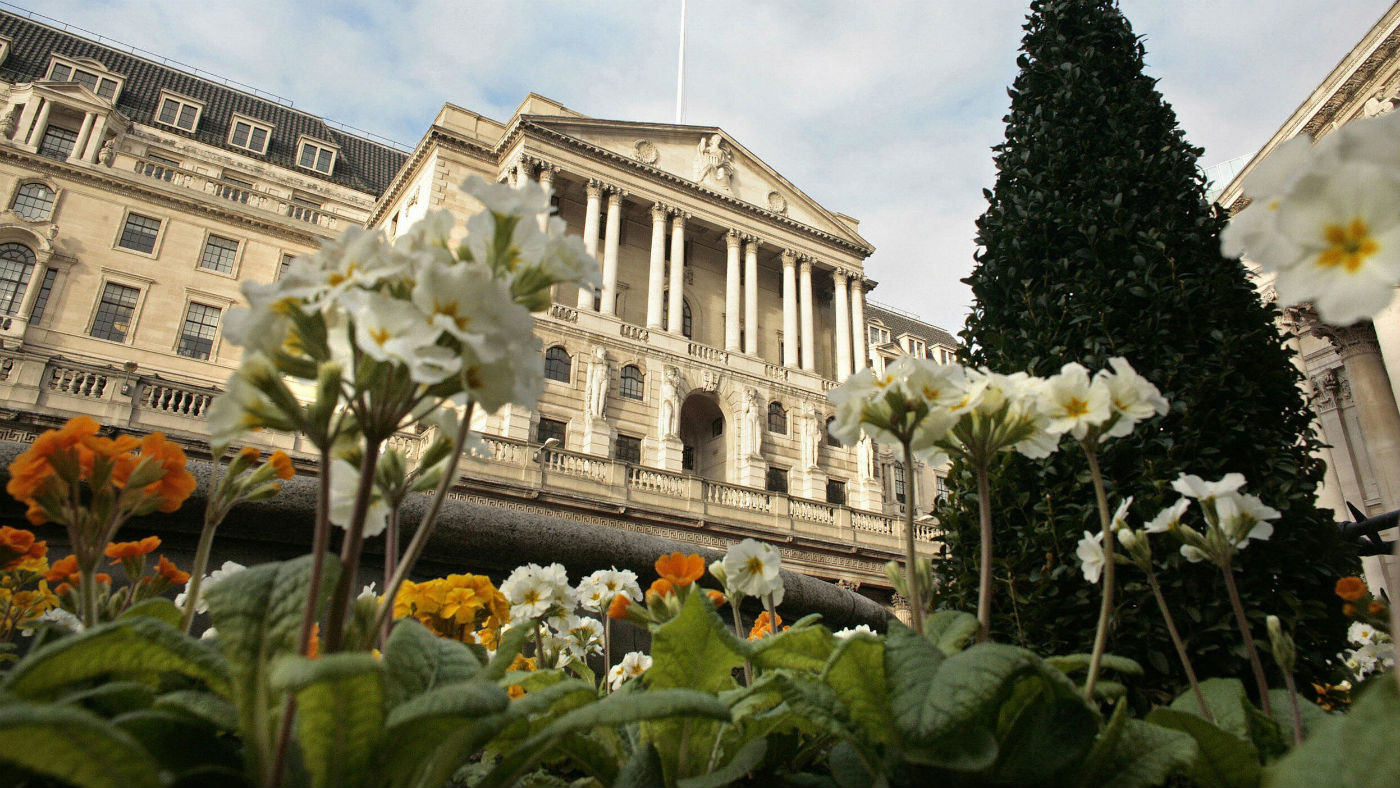
A free daily email with the biggest news stories of the day – and the best features from TheWeek.com
You are now subscribed
Your newsletter sign-up was successful
The Bank of England has raised expectations it will increase interest rates in August after its chief economist unexpectedly joined the minority of policymakers calling for a hike.
The Bank’s all-powerful Monetary Policy Committee (MPC) voted 6-3 to keep rates at 0.5% this month. But in what the BBC’s economics editor Kamal Ahmed described as a “decisive move”, Andrew Haldane, the Bank’s chief economist, joined two other long-term dissenters in voting to raise rates to 0.75%.
Reuters says this unexpected shift, the first time Haldane has voted against the majority view since he joined the Bank in 2014, was “due to concerns that recent pay deals and labour demand could push wages up faster than expected”.
The Week
Escape your echo chamber. Get the facts behind the news, plus analysis from multiple perspectives.

Sign up for The Week's Free Newsletters
From our morning news briefing to a weekly Good News Newsletter, get the best of The Week delivered directly to your inbox.
From our morning news briefing to a weekly Good News Newsletter, get the best of The Week delivered directly to your inbox.
Despite GDP growth of just 0.1% in first quarter of the year, government borrowing figures published on Thursday boosted hopes among some economists that the economy may be gaining momentum.
Inflation continues to fall from a five year high of 3.1% hit last November and with unemployment at its lowest level in more than 40 years, the bank has signalled it will look to raise rates sooner rather than later.
“This all suggests that an August rate hike is ... more likely than not,” ING economist James Smith told Reuters. “While the Bank hasn’t offered any firm signals or commitments ... the overall outlook and tone suggests they’d still like to raise rates (if) the data allows.”
Before yesterday’s vote “the markets were split 50/50 on whether there would be a rate rise at the MPC's next meeting in August”, the BBC reports.
A free daily email with the biggest news stories of the day – and the best features from TheWeek.com
If it does raise rates in August it will be only the second time in almost a decade, after cutting rates to almost nothing in the wake of the financial crisis.
-
 Can foster care overhaul stop ‘exodus’ of carers?
Can foster care overhaul stop ‘exodus’ of carers?Today’s Big Question Government announces plans to modernise ‘broken’ system and recruit more carers, but fostering remains unevenly paid and highly stressful
-
 6 exquisite homes with vast acreage
6 exquisite homes with vast acreageFeature Featuring an off-the-grid contemporary home in New Mexico and lakefront farmhouse in Massachusetts
-
 Film reviews: ‘Wuthering Heights,’ ‘Good Luck, Have Fun, Don’t Die,’ and ‘Sirat’
Film reviews: ‘Wuthering Heights,’ ‘Good Luck, Have Fun, Don’t Die,’ and ‘Sirat’Feature An inconvenient love torments a would-be couple, a gonzo time traveler seeks to save humanity from AI, and a father’s desperate search goes deeply sideways
-
 The end for central bank independence?
The end for central bank independence?The Explainer Trump’s war on the US Federal Reserve comes at a moment of global weakening in central bank authority
-
 Should Labour break manifesto pledge and raise taxes?
Should Labour break manifesto pledge and raise taxes?Today's Big Question There are ‘powerful’ fiscal arguments for an income tax rise but it could mean ‘game over’ for the government
-
 What are stablecoins, and why is the government so interested in them?
What are stablecoins, and why is the government so interested in them?The Explainer With the government backing calls for the regulation of certain cryptocurrencies, are stablecoins the future?
-
 Fed cuts interest rates a quarter point
Fed cuts interest rates a quarter pointSpeed Read ‘The cut suggests a broader shift toward concern about cracks forming in the job market’
-
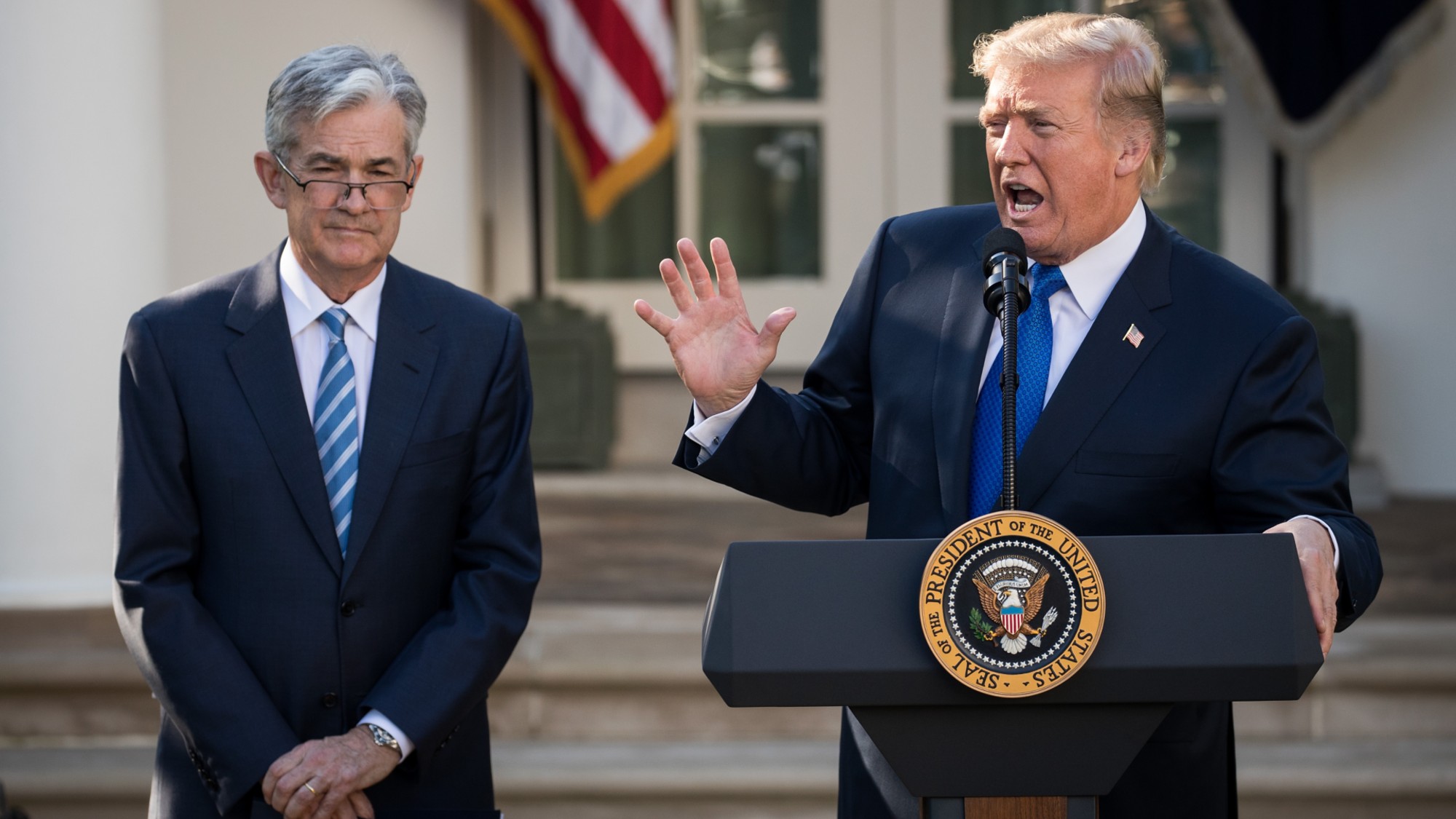 How will Wall Street react to the Trump-Powell showdown?
How will Wall Street react to the Trump-Powell showdown?Today's Big Question 'Market turmoil' seems likely
-
 Will Rachel Reeves have to raise taxes again?
Will Rachel Reeves have to raise taxes again?Today's Big Question Rising gilt yields and higher debt interest sound warning that Chancellor may miss her Budget borrowing targets
-
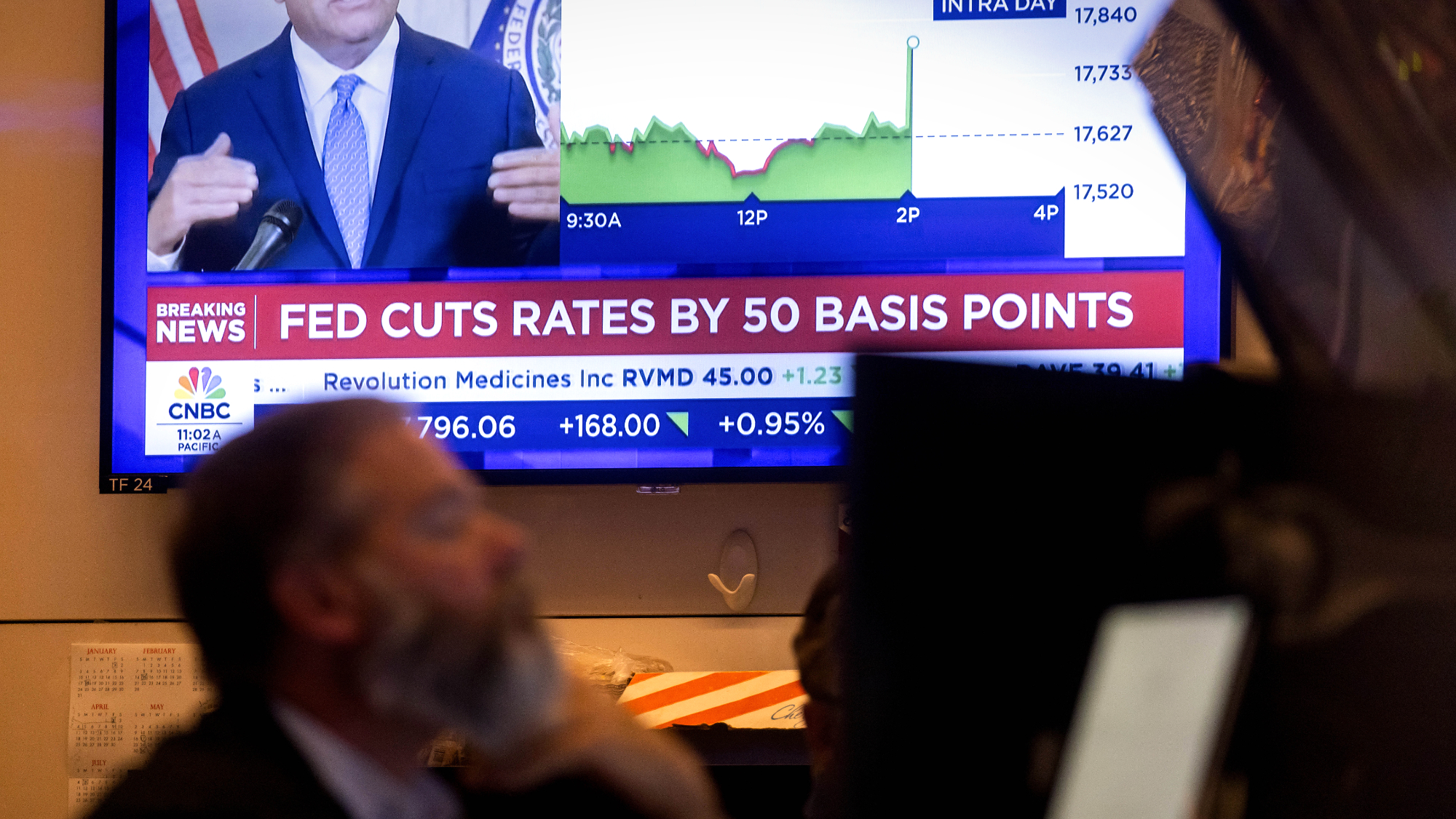 Fed cuts rates half a point, hinting victory on inflation
Fed cuts rates half a point, hinting victory on inflationSpeed Read This is the Fed's first cut in two years
-
 US job growth revised downward
US job growth revised downwardSpeed Read The US economy added 818,000 fewer jobs than first reported